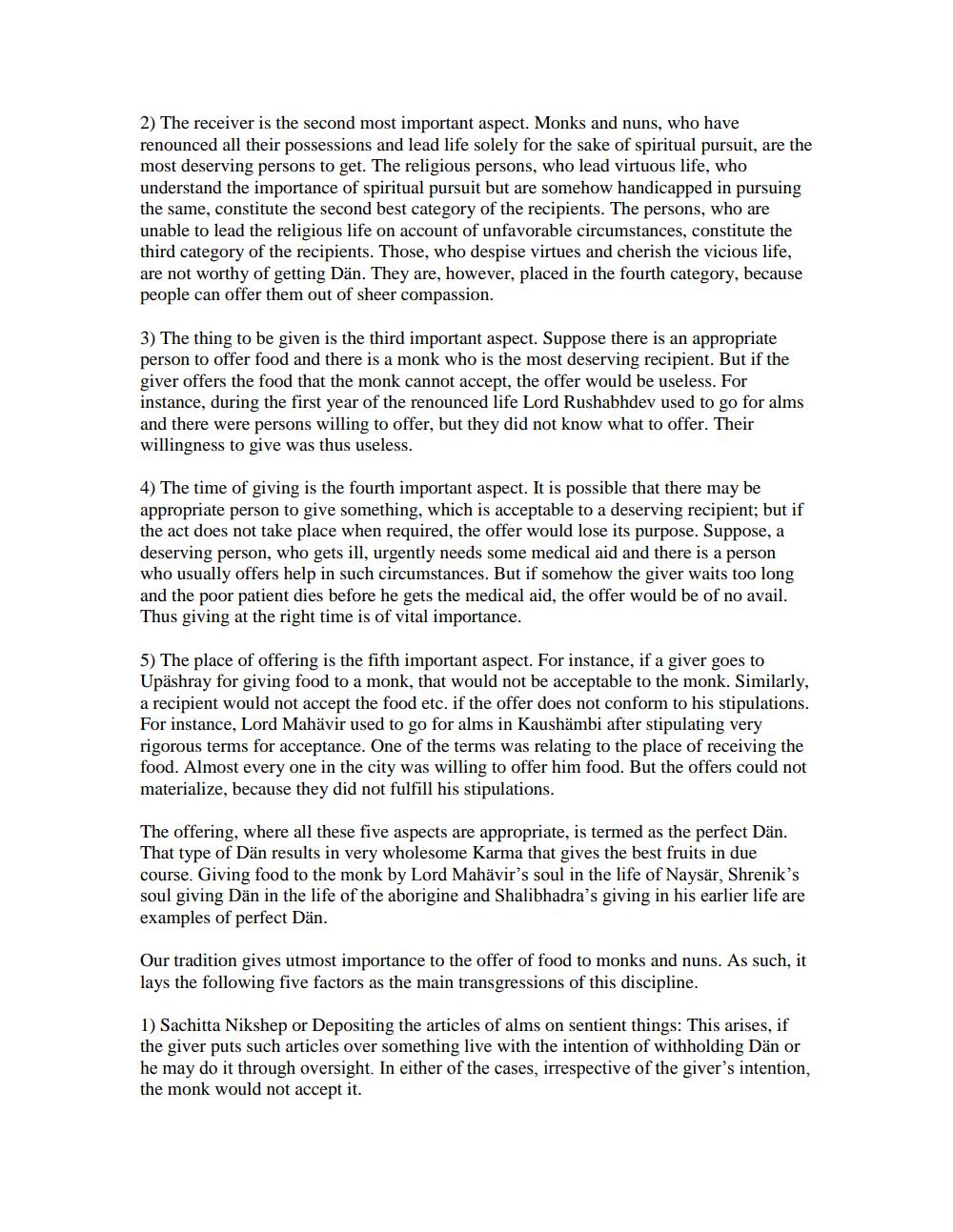________________
2) The receiver is the second most important aspect. Monks and nuns, who have renounced all their possessions and lead life solely for the sake of spiritual pursuit, are the most deserving persons to get. The religious persons, who lead virtuous life, who understand the importance of spiritual pursuit but are somehow handicapped in pursuing the same, constitute the second best category of the recipients. The persons, who are unable to lead the religious life on account of unfavorable circumstances, constitute the third category of the recipients. Those, who despise virtues and cherish the vicious life, are not worthy of getting Dän. They are, however, placed in the fourth category, because people can offer them out of sheer compassion.
3) The thing to be given is the third important aspect. Suppose there is an appropriate person to offer food and there is a monk who is the most deserving recipient. But if the giver offers the food that the monk cannot accept, the offer would be useless. For instance, during the first year of the renounced life Lord Rushabhdev used to go for alms and there were persons willing to offer, but they did not know what to offer. Their willingness to give was thus useless.
4) The time of giving is the fourth important aspect. It is possible that there may be appropriate person to give something, which is acceptable to a deserving recipient; but if the act does not take place when required, the offer would lose its purpose. Suppose, a deserving person, who gets ill, urgently needs some medical aid and there is a person who usually offers help in such circumstances. But if somehow the giver waits too long and the poor patient dies before he gets the medical aid, the offer would be of no avail. Thus giving at the right time is of vital importance.
5) The place of offering is the fifth important aspect. For instance, if a giver goes to Upäshray for giving food to a monk, that would not be acceptable to the monk. Similarly, a recipient would not accept the food etc. if the offer does not conform to his stipulations. For instance, Lord Mahävir used to go for alms in Kaushämbi after stipulating very rigorous terms for acceptance. One of the terms was relating to the place of receiving the food. Almost every one in the city was willing to offer him food. But the offers could not materialize, because they did not fulfill his stipulations.
The offering, where all these five aspects are appropriate, is termed as the perfect Dän. That type of Dän results in very wholesome Karma that gives the best fruits in due course. Giving food to the monk by Lord Mahävir's soul in the life of Naysar, Shrenik's soul giving Dän in the life of the aborigine and Shalibhadra's giving in his earlier life are examples of perfect Dän.
Our tradition gives utmost importance to the offer of food to monks and nuns. As such, it lays the following five factors as the main transgressions of this discipline.
1) Sachitta Nikshep or Depositing the articles of alms on sentient things: This arises, if the giver puts such articles over something live with the intention of withholding Dän or he may do it through oversight. In either of the cases, irrespective of the giver's intention. the monk would not accept it.




